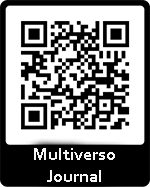The world order as seen through the speeches of Donald Trump, Vladimir Putin, and Luis Ignacio Lula da Silva: Brief readings and meanings from critical geopolitics
DOI:
https://doi.org/10.46502/issn.2792-3681/2025.9.3Keywords:
world order, critical geopolitics, human rights in the 21st century, discourses and meanings, critical thinkingAbstract
The world order goes beyond the classic idea of a structure based purely on power relations between different nation states. This global structure represents an intricate discursive construction in which narratives, symbols, and systems of meaning are intertwined, functioning as mechanisms for legitimizing geopolitical power on a global scale. Given this unquestionable reality, the objective of this essay was to examine the transformations of the current world order through the systematic analysis of the geopolitical discourses produced by three leading political figures (Donald Trump, Vladimir Putin, and Luis Ignacio Lula da Silva), using the conceptual and methodological tools provided by critical geopolitics. The intersection between discourses and interpretations allowed us to conclude that, in practice, the conflictive coexistence of these three discursive projects creates a polycentric and, at the same time, fragmented international context that prevents the univocal existence of any unifying institutional architecture. Trump's transactional nationalism, Putin's civilizational multipolarity, and Lula's cooperative geopolitics are not only different foreign policies, but irreconcilable political ontologies that generate tangible material and symbolic effects on populations, territories, and institutions in various regions of the world with histories, interests, and goals.
References
Arbeláez-Campillo, D., & Villasmil Espinoza, J. (2020). Escenarios prospectivos de un nuevo orden internacional que se vislumbra luego de la pandemia COVID-19. Telos: Revista de Estudios Interdisciplinarios en Ciencias Sociales, 22(3), 494-508. www.doi.org/10.36390/telos223.02
Betancur-Díaz, A. (2020). De la geopolítica clásica a la geopolítica crítica: perspectivas de análisis para fenómenos del espacio y del poder en América Latina. FORUM. Revista Departamento de Ciencia Política, (17), 126-149. https://portal.amelica.org/ameli/journal/401/4012135013/4012135013.pdf
Burdman, J., & Miscione, C. (2022). Geopolítica crítica e inteligencia estratégica nacional: aproximación teórica y dilemas prácticos. Revista de la Escuela Nacional de Inteligencia, (1), 97-122. https://www.argentina.gob.ar/sites/default/files/r-eni1-burdmanmiscione.pdf
Cabrera Toledo, L. (2020). Geopolítica crítica: alcances, límites y aportes para los estudios internacionales en Sudamérica. Foro Internacional, 60(1), 61-95. https://doi.org/10.24201/fi.v60i1.2574
Chainey, R. (2018). Trump en Davos: Comercio, impuestos y lo que America First significa para el mundo. World Economic Forum. https://acortar.link/lOdTxE
Echeverria, R. (2003). La ontología del lenguaje. Santiago: Lom Ediciones S.A.
El Observador. (2025a). ¿Por qué las decisiones de Vladimir Putin moldean la geopolítica mundial? https://acortar.link/gxfCA0
El Observador. (2025b). ¿Por qué las decisiones de Donald Trump moldean la geopolítica mundial? https://acortar.link/kjRDVk
Foucault, M. (2002). Las palabras y las cosas Una Arqueología de las ciencias humanas. Buenos Aires: Siglo veintiuno editores Argentina.
Huntington, S. P. (2001). El choque de civilizaciones y la reconfiguración del orden mundial. Buenos Aires: Paidós.
La Gente. (2023). Discurso y todas las respuestas de Vladimir Putin en Foro Valdai. https://acortar.link/CXCqkd
Lautman, O. (2024). Trump’s Dangerous Rhetoric: A Gift to Putin. Center for European Policy Analysis: https://cepa.org/article/trumps-dangerous-rhetoric-a-gift-to-putin/
Gallardo, F. L. D. (2007). Contribución de la geopolítica crítica a la comprensión de la actual concepción de seguridad. Revista Política y Estrategia, (108), 71-82. https://dialnet.unirioja.es/servlet/articulo?codigo=5625304
Ministério das Relações Exteriores. (2023). Discurso del presidente de la República, Luiz Inácio Lula da Silva, en la Segunda Cumbre Virtual Voces del Sur Global. Discurso completo leído por el presidente de la República, Luiz Inácio Lula da Silva, en la segunda cumbre virtual Voces del Sur Global, el 17 de noviembre de 2023. https://acortar.link/P9olAo
Molero de Cabeza, L., & Cabeza, J. (2009). El poder, el querer y el protestar Análisis sociolingüístico del discurso. Maracaibo: Universidad del Zulia.
Pérez Pérez, G. (2024). La centralidad del conflicto en el Estrecho de Taiwán en la relación Estados Unidos-China durante el gobierno de Donald Trump (2017-2021): hacia la Cuarta crisis del Estrecho. Antrópica. Revista de Ciencias Sociales y Humanidades., 10(20), 257-282. https://doi.org/https://doi.org/10.32776/arcsh.v10i20.460
Published
How to Cite
Issue
Section
License
Copyright (c) 2025 Oscar Orlando Monroy Lancheros

This work is licensed under a Creative Commons Attribution 4.0 International License.
The authors who publish in this journal agree to the following terms:
The authors retain copyright and guarantee the journal the right to be the first publication where the article is presented, which is published under a Creative Commons Attribution License, which allows others to share the work prior to acknowledgment of the authorship of the article. work and initial publication in this journal.
Authors may separately enter into additional agreements for non-exclusive distribution of the version of the work published in the journal (for example, placing it in an institutional repository or publishing it in a book), with an acknowledgment of its initial publication in this journal.



















